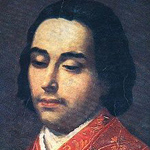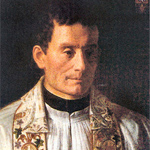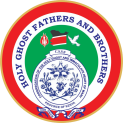Founders

Claude-Poullart-des-Places
Claude was born on February 26, 1679 of French parents Francis Claude (Lawyer in the parliament of Britany) and Jeanne Le Meneust de la Vieuxville. He was, in fact, the first born boy of this noble couple. Due to the strong devotion of this couple to Our Lady, the little Claude was always clad in white robes until he was seven in honor of Our Lady. He was entrusted to a good private tutor and at the age of 9 he began his secondary studies at the Jesuit School in Rennes in 1690.[1] Claude was an exceptionally brilliant boy and acquired many academic honors in different disciplines such as Philosophy, Rhetoric and law. It was his parents’ hope that he would succeed his father in the parliament and inherit great wealth.Claude, however, chose to abandon all the wealth and prestige and went to study theology in Paris. While studying theology, Claude developed attention to the poor chimney sweeps in the capital. Claude became a friend to these chimney sweeps and taught them how to write and read and took care of their material needs as well. He noted, as well, that there were many students for Priestly formation who lived miserable life and could not attend all courses because they had to do menial jobs to earn a living. He took it upon himself to offer these future clerics the food that he was served in the college and helped them with the money he saved from the allowances he received from his father. He went ahead to rent a house and accommodated 12 of these poor seminarians and on the Pentecost day, May 27, 1703, Claude, then simply an aspirant, established a community and Seminary and consecrated it to the Holy Spirit under the invocation of the Blessed virgin Mary conceived without sin. Claude continued playing two roles: taking care of the seminary as well as preparing for his own ordination and on 17thDecember 1707, he was ordained a priest. Claude had a special characteristic of self-privation and penances. It happened that there occurred a severe winter in France followed by famine.This together with the effects of privation made Claude very vulnerable and was attacked by Pleurisy and abdominaldisease by the end of September 1709. On October 2, 1709, he died at 5.00pm after serving for only two years as a priest.[2] The work he left behind, however, still makes him remembered today worldwide.

Francis Libermann
Jacob Libermann as he was initially known was born in a Jewish family at Saverne in Alsace, France in 1802. His father was the chief Rabbi of Saverne, the position which he believed his son Jacob would assume after him. During Jacob’s early life, his father introduced him to Hebrew Scriptures and other Jewish writings. Jacob was sent by his father to Metz for advanced rabbinical studies. During this time, he got acquainted to the European culture and learnt Germany, French, Latin, and Greek languages. He as well got an opportunity to read such writings as the Emile of Jean Jacques Rousseau. Due to this exposure, Jacob abandoned his father’s faith and got introduced to Christianity by reading the New Testament in Hebrew. Together with the influence of his elder brother Samson who had already been converted to Catholicism and after a period of serious prayers, Jacob accepted to be baptized on the Christmas eve of 1826 and took the name Francis. He manifested a great zeal of becoming a priest and was admitted to the Seminary of Stanislas College and later transferred to St. Sulpice. Francis was struck by epilepsy before he was to receive sub diaconate orders. In 1837, with only minor orders, he was offered the position of assistant Novice master of the Eudist Fathers in Rennes. He continued with his responsibilities until 1839 when he felt called to take a leading role in the project started by his former associates in St. Sulpice, that is, Frederick Le Vavaseur and Eugene Tisserant for the blacks especially the neglected former slaves in French Colonies. Francis, his two associates and Maxime De La Bruniere began the enterprise of starting a new society which he dedicated to the Holy Heart of Mary. On September 1841, after waiting for more than ten years, Bishop John Mioland of Amiens ordained him in a ceremony witnessed by the Bishop’s secretary only. Nine days after his ordination, Francis opened the first Novitiate of the new Society at La Neville.[1] He began sending missionaries to Africa especially Guinea. The main mission of his society was not much different from that performed by the Congregation of the Holy Ghost Fathers. However, the latter though having many missionary territories, had less personnel due to the French Revolution which had claimed the lives of many of its priests. Libermann intended to send missionaries to various places especially where the blacks were living under pathetic conditions in Brazil, America and other African countries not only French colonies. Rome had proposed a merger between the society of the Holy Heart of Mary and the Congregation of the Holy Ghost Fathers since both had a similar mission. On June 10, 1848, after negotiations, the two societies merged thus giving rise to the congregation of the Holy Ghost Fathers under the protection of the Immaculate Heart of Mary as it is still known today.[2] Libermann became the Superior General of this new coalition, the position he held until his death on 2ndFebruary, 1852 during vespers in the adjoining chapel when the choir was chanting the Magnificat.
